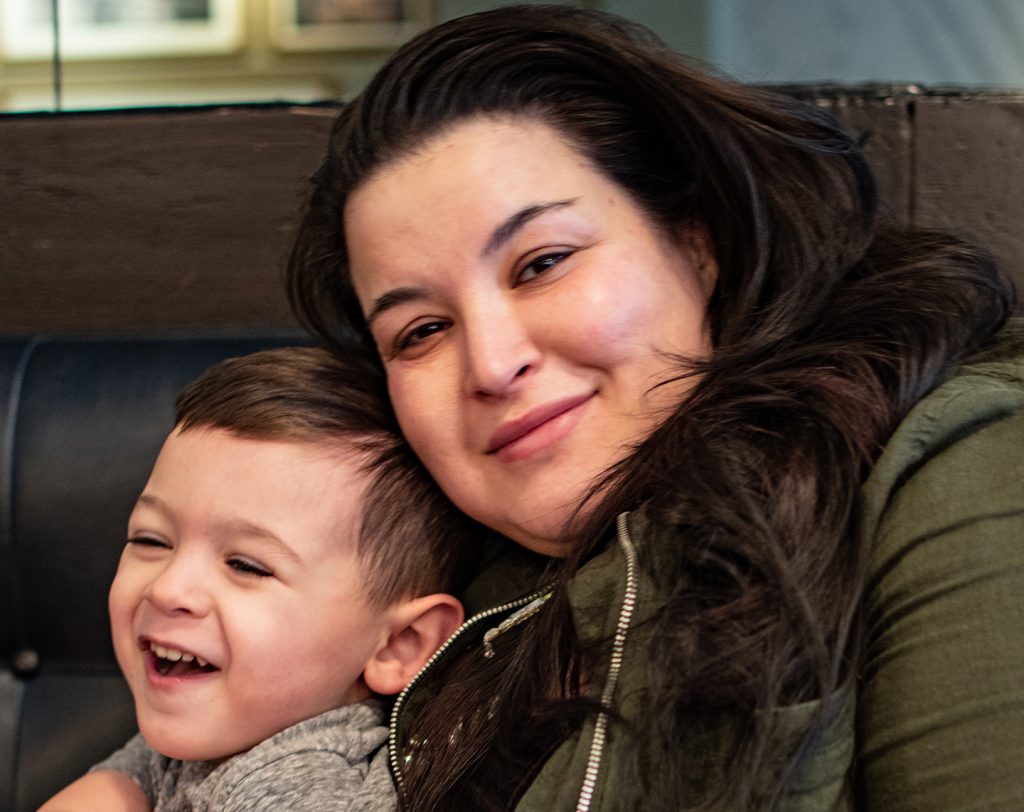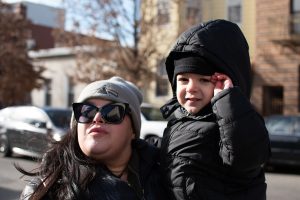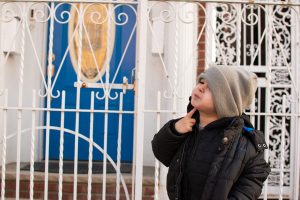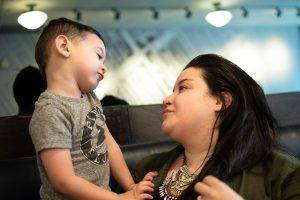

When the emergency room nurse told Amanda she was pregnant, she thought she was delivering good news. It seemed to the nurse that Amanda, then 31 and married, should be happy that the vomiting, exhaustion and other symptoms that brought her to the hospital were not signs of an illness.
“The nurse was very taken aback when I started crying,” Amanda said.
But there was no way a stranger could have imagined what her life was like back then.
Amanda had been using drugs since she was 13. She had been addicted to heroin and, though she had managed to graduate from college with a degree in communications, her life was a mess.
“My husband was using drugs,” she said. “We were living in a couples’ shelter on the Upper East Side and I was on methadone.”
“I was unhappy and scared about life in general, so when I found out I was pregnant, I was super confused and didn’t know what the right decision would be. In my heart, I wanted to have a baby, but in my head there were all these problems. I had no place to live; I didn’t have a job; I was on methadone.”
Her husband’s addiction was relentless and he had been arrested repeatedly for crimes related to his drug use. “I couldn’t depend on him,” she said. “He was one of the main stressors in my life.”
Eventually, it was her sister-in-law who listened to her fears and anxieties, and ultimately told her that it was clear she wanted this baby. She said, “Far less capable women do this,” Amanda recalled. “I hung onto those words.”
She decided to keep the baby, but she was overwhelmed about what lay ahead.
Amanda moved to a residential treatment center for pregnant women on methadone and one of the other residents told her about Nurse-Family Partnership. “She told me that when she was pregnant, she had this nurse, and that she was amazing,” Amanda said.
She was eight weeks pregnant, sick and scared, and knew she needed help, so when she contacted the Targeted Citywide Initiative site of New York City Nurse-Family Partnership and met nurse Abby, it was like the world had magically produced a lifeboat in the midst of a raging typhoon.
“When I sat with her for the first time, the feeling she gave me was of being supported. It was a huge relief. She didn’t judge me. She gave me the feeling that things were going to be OK.”
Amanda’s mother had died when she was 13, so she has very few memories of being nurtured by a mother.
“She was there to answer all my little questions and calm my anxieties,” Amanda said.
Nurse Abby told her what to expect through pregnancy and childbirth and, step-by-step, taught her how to breastfeed, change a diaper and care for her son.

Ezra was born with Neonatal Abstinence Syndrome, a form of withdrawal from the methadone Amanda took throughout her pregnancy. He was in the neonatal intensive care unit for five weeks.
“It was really hard for me to see him suffering because I kept thinking, ‘This is my fault,’” Amanda said.
“I never used throughout my pregnancy, thank God,” she said. But after Ezra was born, she was determined to get off the methadone that had helped her deal with her addiction.
“It was hard to go home without him. I felt really bad,” she said, but Abby came with her to the NICU and sat with her, helped her work with the neonatal nurses and helped her cope with the emotional trauma of seeing her baby being treated for withdrawal.
“Then I took him back to the center with me and right away I knew things were going to be OK. I had a very, very good feeling about it. It was the best thing that ever happened to me.”
Amanda started detoxing right after Ezra was born. It wasn’t easy, but she was highly motivated. “I had this bigger picture about why I was doing this. I had a purpose. It kept me going.”
Soon after he was born she also learned that she carries the breast cancer gene. Her grandmother is a breast cancer survivor and her mother died of ovarian cancer. So, when Ezra was not yet a year old, she underwent a double mastectomy.
“I wasn’t allowed to pick him up for six weeks,” she said. “It was a hard, painful recovery, but I had my nurse around to help and guide me.”
“She helped me keep the picture in my head. ‘You’re doing this because you’re a good mom.’”
Amanda and Ezra stayed in the center for his first year and then she began searching for her own place and a job to support them.
“I had to turn down a lot of jobs because of child care,” she said.
Ezra was 2 when they graduated from the Nurse-Family Partnership program, but the relationship with Abby was still very close.
“Right after we graduated, about a month later on my birthday Abby sent me an email saying that Nurse-Family Partnership had just created a new job. She said, ‘It’s perfect for you.’”
Amanda had become a volunteer ambassador for Friends of New York City Nurse-Family Partnership explaining the program to women she encountered and recommending it to those who were struggling.
“I read the job description and applied,” Amanda said. “I loved Nurse-Family Partnership so much and in this job I would literally be doing what I already was doing, though in a more formal way. I wanted other girls to get the kind of help I was getting.”
Now, Amanda lives in Queens and works for Nurse-Family Partnership doing outreach at churches, community centers, homeless shelters and other facilities, talking to vulnerable first-time moms and encouraging them to seek help.
“Often they are reluctant to go into the program until I tell them I went through it myself, that I was homeless and on methadone,” she said. “Sometimes these girls look at me like ‘What does this lady know.’ Then I tell them that I was on the streets, that I shot heroin for 10 years.”
“Being very open about where I’ve been and telling my story is my biggest asset. It helps me give back to my community.”
At this point, Amanda is a busy single mom who is proud of her life and all she’s accomplished. She underwent a hysterectomy this fall to prevent future gene-related cancers, so she’s very grateful that she made the decision to keep her son. She knows now that it was a once-in-a-lifetime opportunity.
“If you met Ezra, you would have no clue that he has grown up with any kind of hardship,” she said. “He’s very smart; he laughs all the time. He’s just the best. He has a lot of personality, no developmental problems, no physical problems.”
Amanda’s family is also back in her life.
“They thought I was going to die an addict,” she said. “Everybody is amazed and really, really, really grateful that I got clean and I have this amazing boy that everybody loves so much.”
In addition to her job and caring for an active 3 ½-year-old, Amanda remains deeply committed to Narcotics Anonymous.

“I have my friends and basically we’re all in recovery,” she said. “I’m grateful every day that I’m clean. I know if I use, everything goes out the window.”
She knows that addiction is a powerful force and her counselors remind her that “a kid can’t keep you clean.”
But, she said, something “flipped in my head” when Ezra came along.
“I can’t imagine doing anything to jeopardize my son’s life. I know my role as a mother is so important.”
“The absence of a mother in your life makes you realize how important that presence is.”
“I know – I really, really know – how just a hug is so important to him.”

